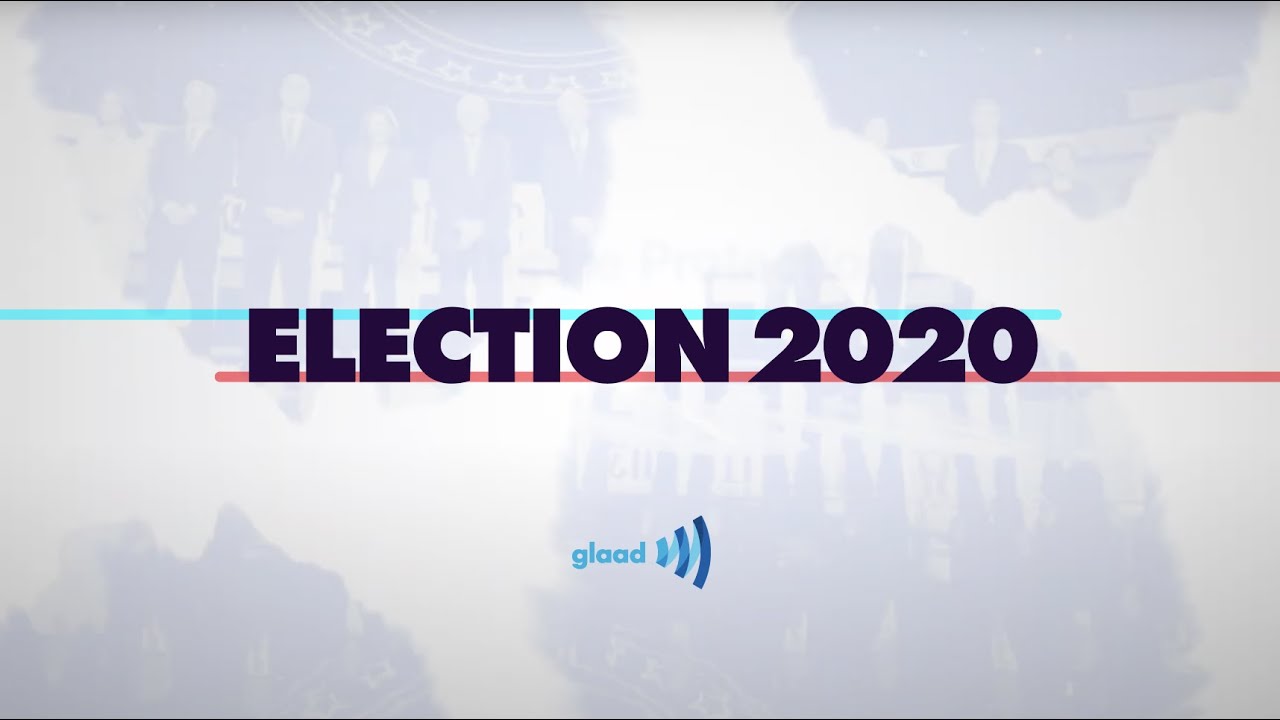
GLAAD, the world’s largest lesbian, gay, bisexual, transgender, and queer (LGBTQ) media advocacy organization, operates to accelerate acceptance for the LGBTQ community through advocacy and activism. Since the Trump administration took office in 2017, GLAAD has been on the frontlines to fight against the attacks on the LGBTQ community from the highest seat in American government. The organization established the GLAAD Accountability Project, which documented over 175 anti-LGBTQ attacks in policy and rhetoric from the Trump administration over the course of four years. Ahead of the 2020 election, GLAAD was dedicated to ensuring that a pro-equality administration, one dedicated to the advancement of LGBTQ equality and acceptance, would return to the White House.
In response, GLAAD created its 100 Days of Action campaign to lead the charge for the LGBTQ community during the 2020 election cycle. The campaign had three main goals and objectives: 1) Increase LGBTQ voter turnout and educate LGBTQ people about what's at stake during the election; 2) Leverage the influence of celebrities and influencers to bring mainstream attention to the importance of voting and how the election affects LGBTQ lives; and 3) Enhance overall media coverage of LGBTQ issues during the election cycle and responding to news in real-time to shape and include LGBTQ issues in the national conversation.
Here are various ways GLAAD implemented its 100 Days of Action campaign to turnout the LGBTQ vote:
During the Republican National Convention in August, GLAAD premiered an advertisement on Fox News and across digital media called the “The Conversation,” which spotlights the lack of protections still facing the LGBTQ community in the United States, the Trump Administration’s opposition to those protections, and the Equality Act as the solution. GLAAD also placed ads for "The Conversation" on YouTube and across social media.
GLAAD reached out to debate and town hall moderators to advocate for inclusion of LGBTQ issues in nationally televised Presidential candidate debates and town halls. It used its social media platforms to ask its followers what questions they wanted to hear asked during debates and town halls.
During each town hall and debate, GLAAD live-tweeted about the inclusion, or lack thereof, of LGBTQ issues during each event, with one tweet going viral about the fly on Mike Pence’s head during the Vice Presidential debate receiving more airtime than LGBTQ issues.
GLAAD regularly released graphics on social media to raise awareness about voting deadlines in all 50 U.S. states, while also offering resources for marginalized communities who are often disenfranchised from voting.
In October, GLAAD’s released its ‘State of LGBTQ Voters’ poll found that LGBTQ voters were highly motivated and prepared to vote, while overwhelmingly in favor of Biden over Trump.
GLAAD partnered with BuzzFeed to launch “Drive the Vote,” a 4-part video series on social media featuring interviews with LGBTQ voters across four battleground states: Pennsylvania, Ohio, Michigan, and Wisconsin.
GLAAD worked with Demi Lovato, Halle Berry, Adam Rippon, and Lee Daniels to send voice messages to LGBTQ voters and allies in battleground states of Texas, Ohio, and Pennsylvania about early voting, voting deadlines, and the issues at stake in this election, which were shared across GLAAD social channels.
GLAAD hosted various Instagram Live conversations in which GLAAD President & CEO Sarah Kate Ellis spoke with leaders and politicians like Delaware Senator Sarah McBride, Voto Latino President & CEO Maria Teresa Kumar, and Victory Fund President & CEO Annise Parker about the importance of voting and what’s at stake for LGBTQ people in the 2020 election.
GLAAD worked with celebrities like Harvey Guillen, Theo Germaine, Billy Lee, Isis King, Peppermint, Jay Manuel, Brandon Stansell, and Josh Feldman to post to social media wearing GLAAD’s election merch and drive people to GLAAD's partner page with HeadCount.
GLAAD continued to hold government officials and other notables in the Trump administration accountable for their anti-LGBTQ records. For example, ahead of the confirmation hearings for Supreme Court Justice Amy Coney Barrett, GLAAD released a viral video across social media which highlighted her anti-LGBTQ record and affiliations.
The day before the election, GLAAD released a get-out-the-vote PSA on its social media channels from its 20 Under 20 honorees Jazz Jennings, Kidd Kenn, Jamie Margolin, Sage Dolan-Sandrino, Map Pesqueira, and Alex Escaja, which aimed to encourage and inspire LGBTQ youth voter turnout.
GLAAD’s 100 Days of Action campaign was incredibly successful in bringing LGBTQ issues into the national conversation and ensuring that LGBTQ voters turned out in the election. Largely due to GLAAD’s advocacy work, and Twitter campaigns to get the LGBTQ community to amplify the work, calling on debate moderators to include LGBTQ issues, ABC News included two questions centered on LGBTQ issues during its Town Hall with Joe Biden, including a groundbreaking question on transgender Americans, a first for any nationally-televised forum with a Presidential candidate. GLAAD also helped to insert LGBTQ issues into the election conversation in many mainstream outlets leading up to the November election, including The New York Times, Associated Press, USA Today, Reuters, Newsweek, NBC News, People, Vulture, The Hill, Vox, CNBC, The Advocate, Out, LGBTQ Nation, and many more.
GLAAD’s post-election poll also found record turnout for LGBTQ voters, with 93% of LGBTQ respondents saying that they voted in the 2020 general election, with 25% voting for the first time. Thanks to GLAAD’s election work, a Washington Post analysis found that LGBTQ voters made a critical difference in election results in battleground states.

